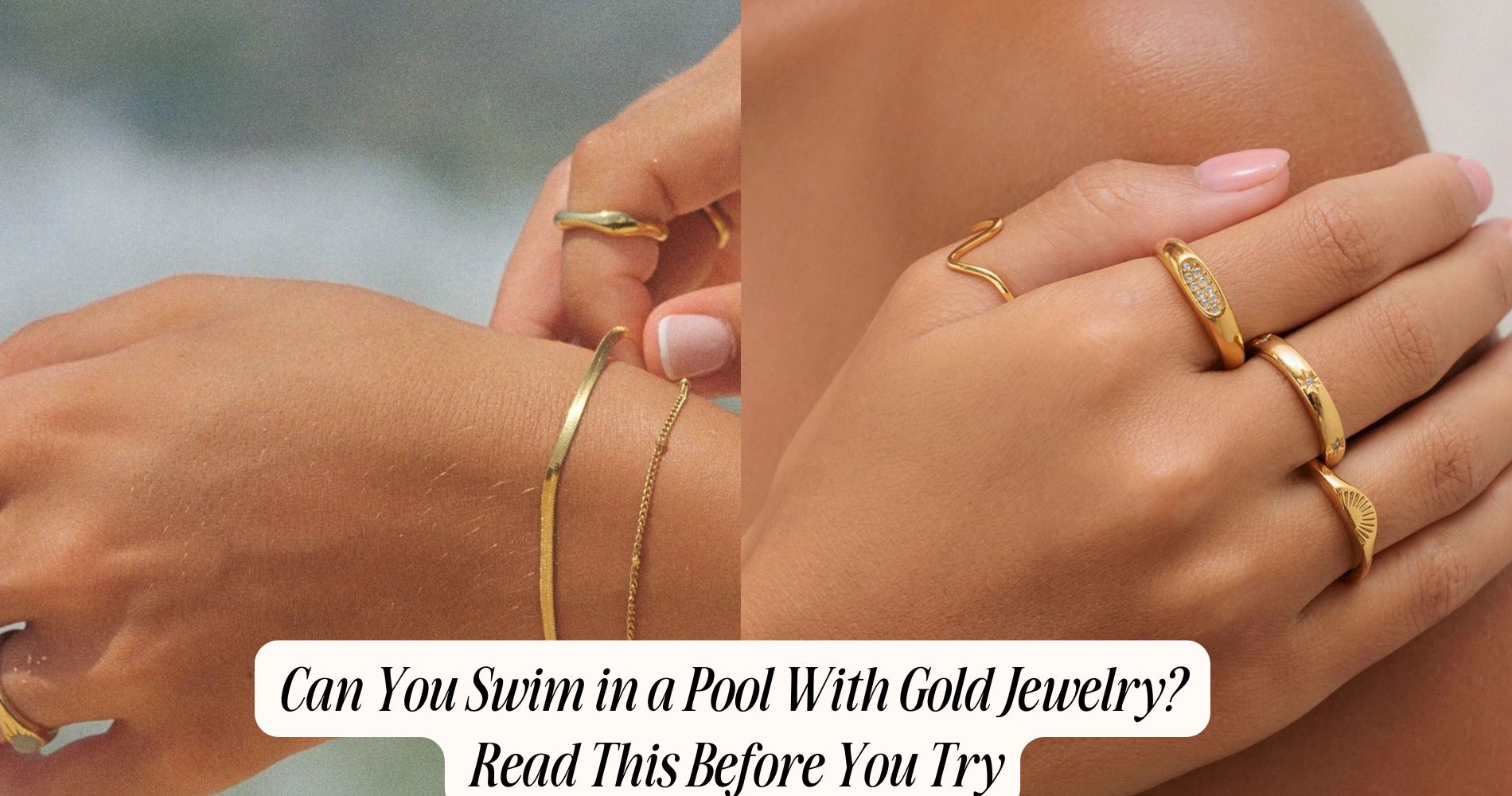
Can You Swim in a Pool With Gold Jewelry? Read This Before You Try
Can You Swim in a Pool with Gold Jewelry? Swimming in a pool with gold jewelry isn’t advisable, as chlorine can corrode alloys, causing dullness and potential loss of shine. Loose pieces may slip off in the water, and heavy jewelry can feel uncomfortable while swimming. For stylish, water-resistant alternatives, explore our Swim Jewelry collection. To protect your gold jewelry, rinse it thoroughly after exposure to pool water and store it properly. Want to learn more about caring for your jewelry after swimming? Keep reading for essential maintenance tips!
Understanding Gold Jewelry Composition
When you wear gold jewelry, understanding its composition is essential for both care and longevity. Gold purity is measured in karats, with 24K representing pure gold.
However, most jewelry contains alloys to enhance strength and durability. The alloy composition can include metals like copper, silver, or nickel, which can affect both the color and the resilience of your pieces.
Knowing the specific karat of your jewelry helps you assess its value and care requirements. For instance, 18K gold, while beautiful, may be more susceptible to wear than 14K gold due to its higher gold content.
The Impact of Chlorine on Gold
While enjoying a swim, you mightn't realize that chlorine, commonly found in pool water, can have an impact on your gold jewelry.
Chlorine corrosion can affect the integrity of your pieces, especially if they contain alloys that are more susceptible to damage. Over time, exposure to chlorine can lead to dullness and discoloration, diminishing your jewelry's shine.
Although pure gold is resistant to corrosion, the metals mixed with it, such as copper, may not be. This can greatly affect your jewelry's longevity.
To keep your gold looking its best, consider removing it before diving into the pool. By taking this precaution, you can help preserve the beauty and lifespan of your cherished pieces.
Potential Risks of Wearing Jewelry While Swimming
Wearing jewelry while swimming can pose several risks beyond just the effects of chlorine. For starters, loose pieces can easily slip off in the water, leading to loss or damage. This is particularly concerning in crowded pools where items can be difficult to recover.
Additionally, sharp edges or protrusions on your jewelry can pose a pool safety hazard, potentially harming you or others. The chemicals in pool water can also tarnish and degrade certain metals, requiring extra jewelry care afterward.
Finally, wearing heavy pieces may create discomfort or distractions, affecting your swimming ability. To guarantee a safe and enjoyable swim, consider leaving your jewelry behind or opting for more secure, pool-friendly alternatives.
Cleaning and Maintenance After Swimming
After swimming, it's important to clean and maintain your gold jewelry to preserve its luster and prevent damage. Chlorine and other pool chemicals can tarnish gold, so rinse your jewelry under lukewarm water immediately after swimming.
Use mild soap and a soft toothbrush to gently scrub any residues. Avoid harsh chemicals or abrasives that can scratch the surface.
For maintenance tips, consider storing your gold jewelry in a soft pouch or a separate compartment to prevent scratching.
Regularly inspect your pieces for signs of wear or damage, and consider professional cleaning every few years.
Following these cleaning techniques will keep your gold jewelry shining beautifully and extend its lifespan.
Alternatives to Wearing Jewelry in the Pool
To protect your gold jewelry from pool chemicals and potential damage, consider alternatives to wearing it while swimming. Instead of your favorite pieces, opt for waterproof accessories like silicone rings or bracelets made from durable materials.
These jewelry alternatives are specifically designed to withstand exposure to chlorine and saltwater, ensuring you can enjoy your time in the pool without worry.
Additionally, you might want to explore waterproof watches or fitness trackers that can double as stylish accessories while being resilient against water.
By choosing these options, you can keep your gold jewelry safe at home and still look great while enjoying the water.
Prioritizing protection allows you to focus on fun rather than potential damage.
Signs of Damage to Look Out For
Even if you take precautions, it's important to regularly inspect your gold jewelry for signs of damage after swimming.
Start by checking for discoloration, which can indicate that the pool conditions have affected your jewelry's finish. Look for scratches or dents, as these can diminish the overall jewelry durability.
Additionally, examine the clasps and links for any looseness or signs of wear, which might compromise their integrity. If you notice any changes in texture or if the gold appears dull, it's a sign that the chemicals in the pool might be taking a toll.
Tips for Keeping Your Gold Jewelry Safe
Regularly inspecting your gold jewelry for damage is just one step in ensuring its longevity.
To enhance jewelry safety, store your pieces in a soft, dry place, away from harsh chemicals. Avoid swimming in pools while wearing gold jewelry, as chlorine can weaken its structure. If you do decide to wear it, practice pool etiquette by being mindful of where you place your items—consider using a secure pouch.
Additionally, clean your jewelry gently with a soft cloth after exposure to water, ensuring no residue remains.
Finally, consider removing your gold jewelry during strenuous activities to prevent scratches or damage.
Frequently Asked Questions
Can Saltwater Affect Gold Jewelry Differently Than Chlorine?
Yes, saltwater corrosion can affect gold jewelry differently than chlorine exposure. Saltwater is more corrosive, potentially leading to tarnishing or damage over time, while chlorine exposure can weaken settings and cause discoloration in some cases.
Is It Safe to Wear Gold-Plated Jewelry in the Pool?
It's best to avoid wearing gold-plated jewelry in the pool. Chlorine can damage the gold plating, leading to tarnishing. Proper jewelry maintenance includes removing pieces before swimming to prolong their appearance and quality.
How Does Water Temperature Impact Gold Jewelry?
Water temperature can affect gold jewelry's durability. Extreme temperatures may alter water chemistry, leading to tarnishing. For best jewelry care, avoid hot tubs and excessively warm pools to prolong your gold's shine and integrity.
Can Swimming Pools Harm Gemstones in Gold Settings?
Swimming pools can harm gemstones in gold settings due to chemicals like chlorine. To guarantee gemstone safety, avoid prolonged exposure and maintain your jewelry regularly, checking for any damage or loosening caused by pool water.
What Should I Do if My Gold Jewelry Tarnishes After Swimming?
If your gold jewelry tarnishes after swimming, gently clean it with a soft cloth and mild soapy water. For long-term jewelry care, store pieces properly and avoid exposure to harsh chemicals to prevent further tarnishing.
Conclusion
In summary, while it might be tempting to swim with your gold jewelry, it's best to be cautious. Chlorine can affect the metal's integrity and lead to potential damage. If you choose to wear it, keep an eye out for any signs of wear. After swimming, make sure to clean your jewelry thoroughly to maintain its shine. Ultimately, consider leaving your valuables at home or in a secure spot to guarantee they stay safe and intact.








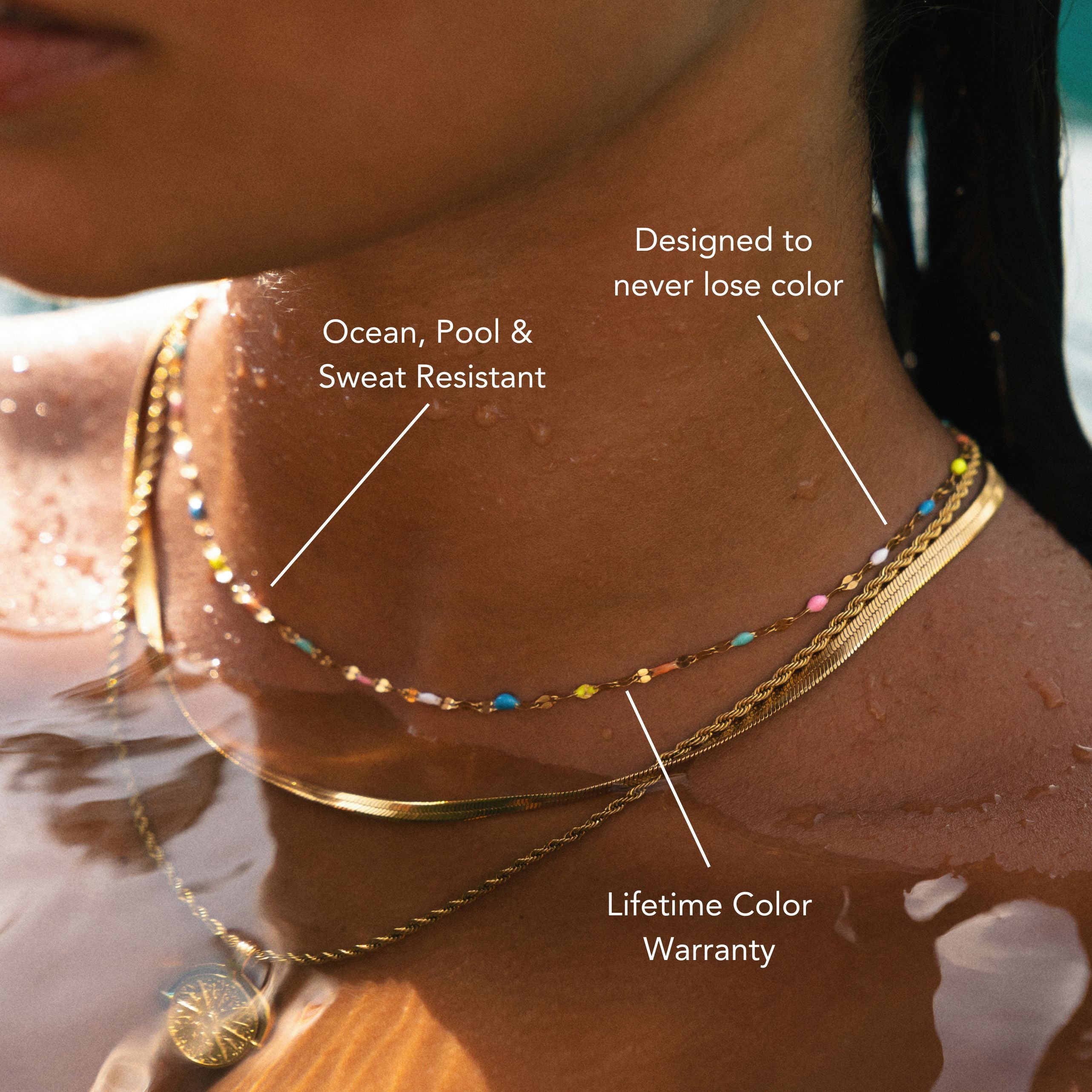

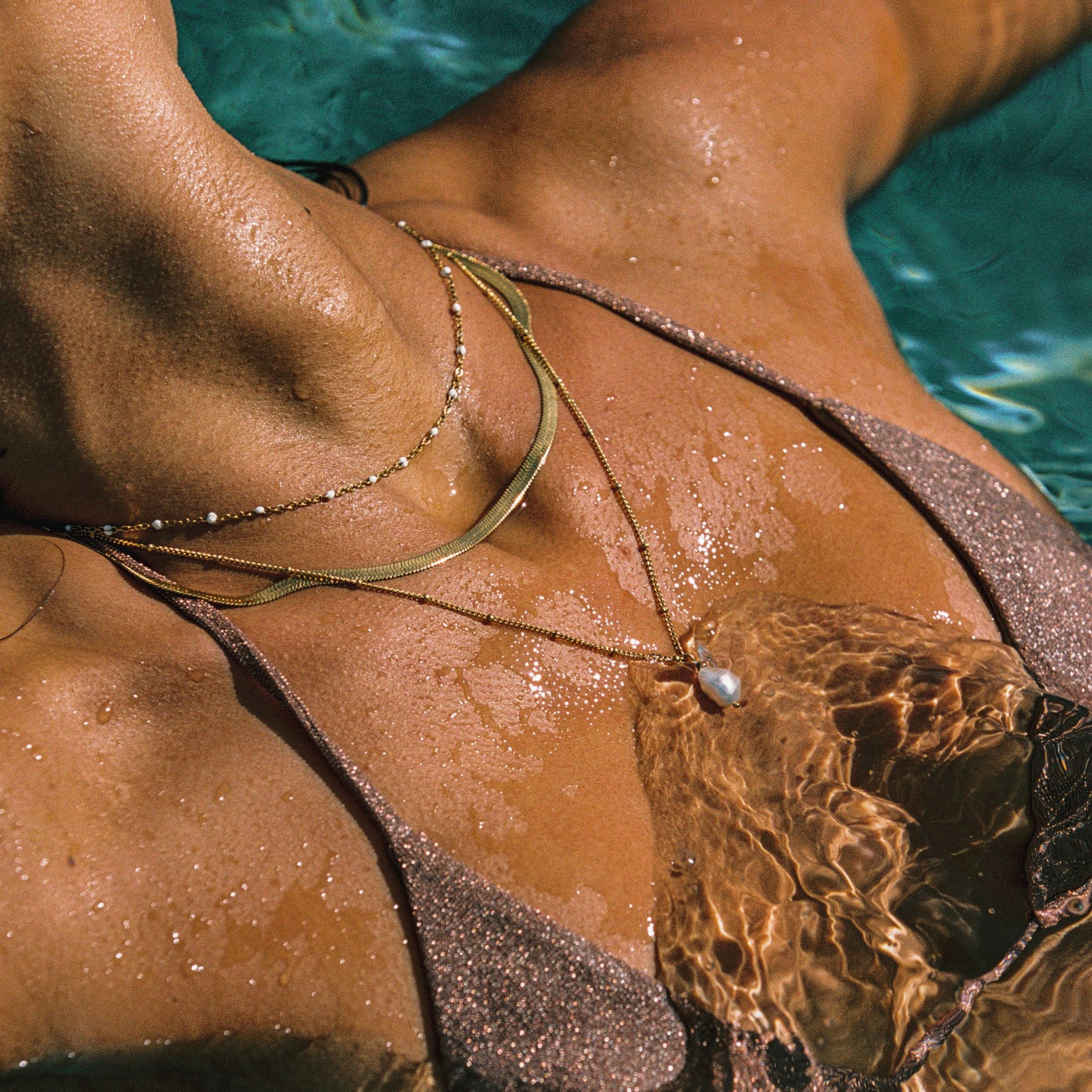
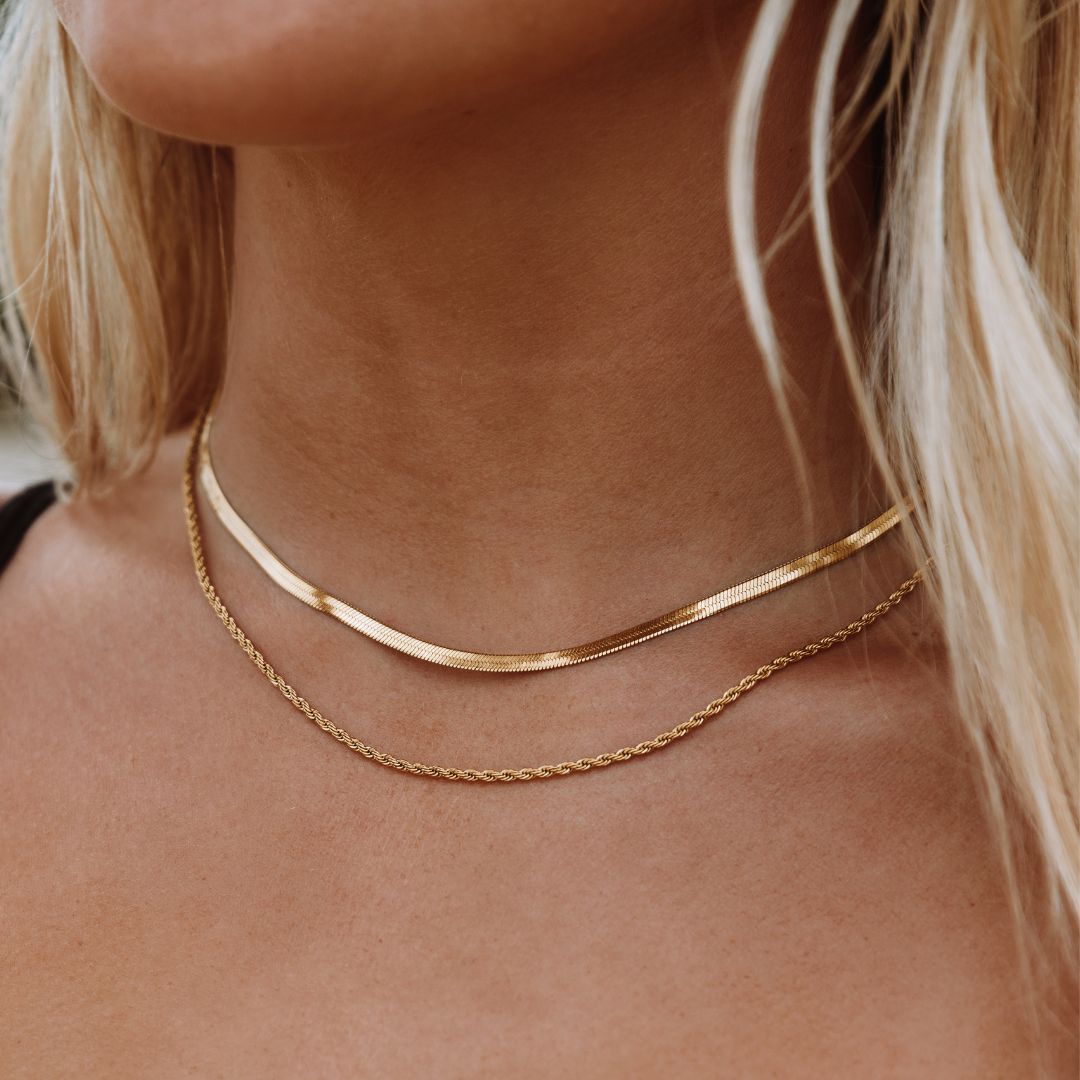



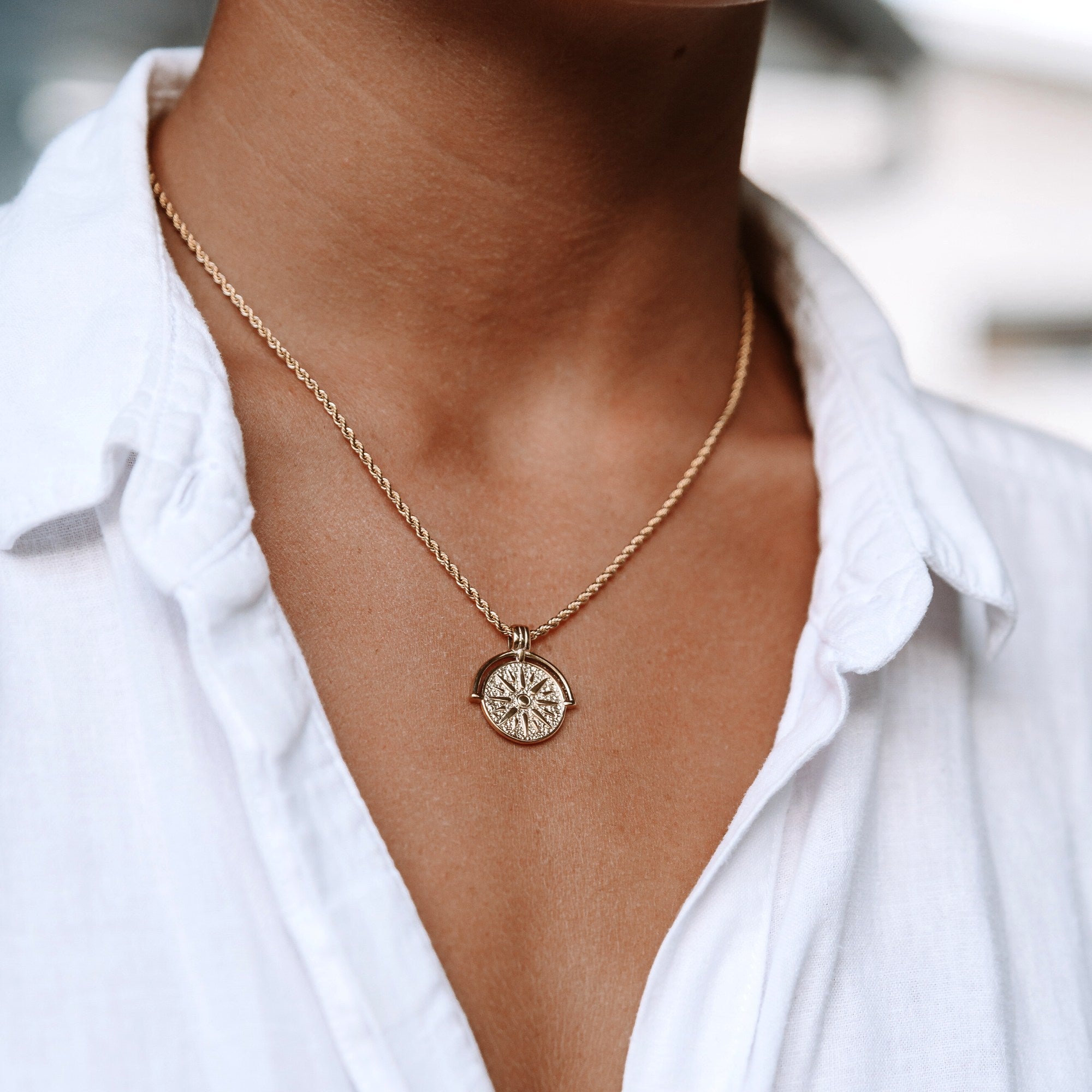

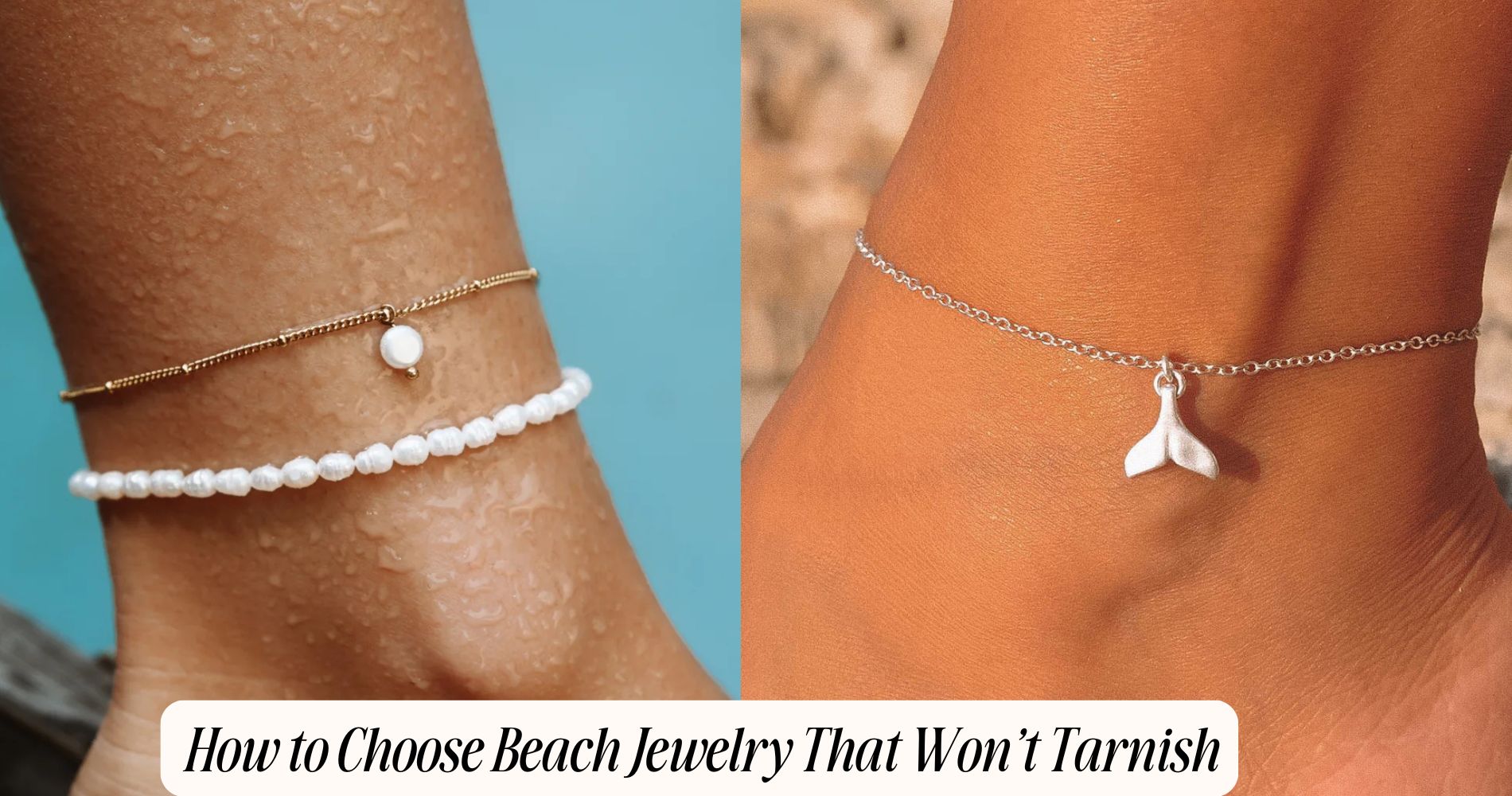
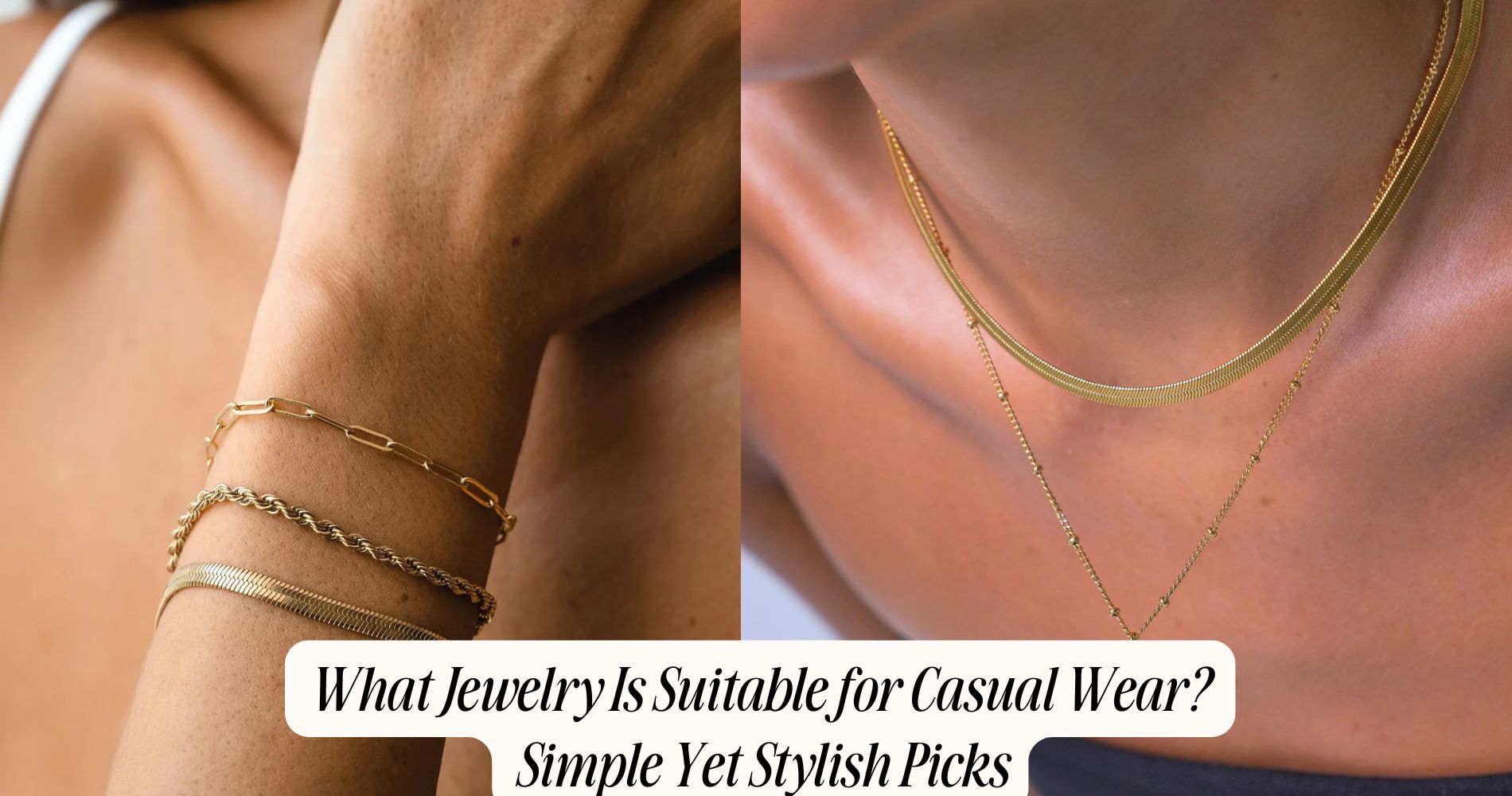




Leave a comment
This site is protected by hCaptcha and the hCaptcha Privacy Policy and Terms of Service apply.